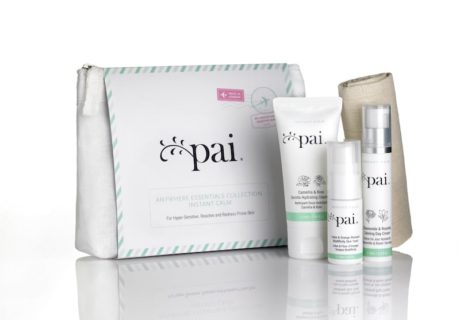Gluten-free credentials are increasingly finding their way into the UK beauty sector, with a 22% increase in the use of the gluten-free claims in 2013 compared with the previous year, according to a blog by Mintel’s Lucy Cornford.
With only 1% of launches specifically highlighting their gluten-free credentials on pack, she says that the potential to capitalize on gluten-free beauty product claims should not be underestimated when consumers are actively seeking those claims to integrate gluten-free products into their lifestyles.
41% of those products positioned as gluten-free in 2013 were in the skincare area, 14% were in the haircare sector, 39% colour cosmetics, 3% soap and bath products and 2% shaving products and depilatories.
But how relevant is a gluten-free tag on beauty and skincare products? Is it a necessary claim or just an over-sell on the part of manufacturers? Ingredients sometimes found in skincare products may include wheat bran, wheat starch, wheat protein, rye seed extract, barley, oat bran and wheatgerm oil, however most ingredients derived from grain sources are highly refined so that no trace of gluten proteins is retained.
And in any case, according to Coeliac UK, “gluten will only cause a problem if you eat it; it cannot be absorbed through the skin”. The organization adds that it is unlikely that someone would swallow enough lip balm or lipstick, for example, to cause a problem.
Graeme Hume, founder and MD of Pravera Ltd, distributor of the Lavera brand in the UK, says: “Although the interest in gluten-free beauty products may be slightly up, it is still the case that whether a product is free from gluten or not is irrelevant to the majority of consumers. Especially considering that even those who are allergic to gluten in food can often tolerate it in skincare formulations. Keeping in mind there is only limited space on pack, each brand has to make a decision on what information should take priority and for that reason, many natural brands – including Lavera – decide not to put any info on gluten content on the product packaging. However, in-store sales staff can verify which products are gluten-free.”
Natural skin, hair and bodycare brand Aubrey does carry a symbol on its gluten-free products, which are certified by the US Food and Drug Administration. Gianni Quaglieri, director of operations for Au Naturel, UK distributor of the range, comments: “It’s something that certain consumers are aware of, they want gluten-free and are looking for that type of mark on a product. Because they are natural products people expect certain extras as well so we’ve had to raise our game in order to satisfy curious consumers who are asking more questions.
“Some people feel that if they are gluten intolerant they don’t want to have anything to do with gluten. We’re giving them the option and offering that service if they’re looking for a gluten-free product – it’s a question of making your own mind up really.”
Michelle Berriedale-Johnson, editor of the FreeFrom Matters sites, says: “There is the question of perception. Many of those who are gluten sensitive would rather be safe than sorry, so even though the risk may be vanishingly small, they would rather not take it.”
She also believes that the issue of transparency is paramount in the area of free-from. “Since ingredients names do not always enlighten consumers greatly as to what is actually in the product, we would much rather see a gluten-confining declaration than not in the interests of transparency.”





